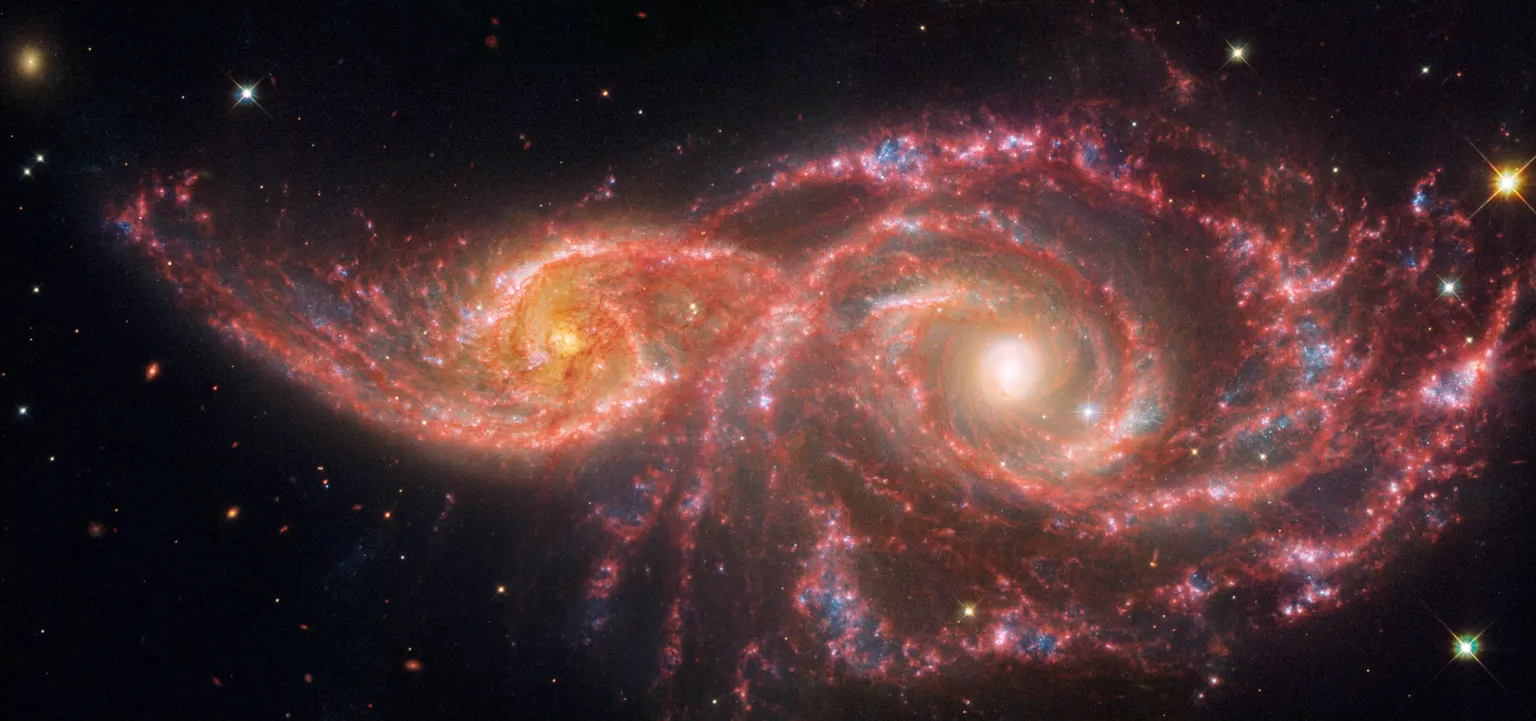 The observation by NASA's James Webb Space Telescope and Hubble Space Telescope
The observation by NASA's James Webb Space Telescope and Hubble Space Telescope
Introduction
With the recent successful launch of SpaceX’s Starship[1], many people around the world are interested in space exploration. In this situation, South Korea has also established a roadmap for space exploration and invested 992.3 billion Won in space development in 2024, a 14% increase from last year[2]. However, this increase in space exploration budget is unnecessary in three points of veiw: astronomical discovery, human life on space, and economy.
Body
1. Abundant astronomical discoveries to be made
First of all, a lot of astronomical discoveries can still be made with the space telescopes already on track. Since 2022, the James Webb Space Telescope (JWST) has been sending data back to Earth and has greatly impacted astronomy[3]. The JWST is capable of observing stars at 28 billion light-years distance[4]. Which means there are still countless numbers of astronomical objects observable with the JWST, and it is not yet the time for a new astronomical telescope. So it will be fine for astronomers, even if there is no increase in budget for space exploration for a few decades.
2. Human life on space
A big driving force for space exploration is space colonization. But this is not feasible with current science and technology. Other issues may be solvable with technological advances in the near future, but when it comes to human living in space, the impacts of the space environment on the human body are difficult to address. Humans evolved for and adapted to conditions on Earth. The human body on another planet will break down inevitably. The increase of cancer risk due to cosmic rays, stiffness of blood vessels caused by microgravity, radiation, vision and bone problems, and much more[5]. These are the side effects of a single space travel flying in low Earth orbit for a month or so. It would be a much bigger deal for people traveling farther and longer. Outer space, including other planets or moons, is definitely not a good place to live for us humans.
3. Economical reasons
Finally, not increasing the budget for space exploration does not cause a stagnation in space exploration[6]. In the case of the United States, there has been a downturn in space budgets with the inauguration of President Obama in 2009. NASA’s solution to the budget downturn was the partnership with private industries. SpaceX’s early Falcon 9 launches helped it transit into the world leader in space launches and commercial telecommunications. Also, ideas like reusable rockets, mesh networking, and even using commercial manufacturing techniques became real, leaving the space industry forever changed for the better.
Conclusion
It is definite that the space industry, including space exploration can benefit the human race by leading to new discoveries and technological advances. However, the return from such space exploration is uncertain. If we invest excessively in space exploration, we may miss out on industries that have clear paybacks, such as welfare or solving environmental pollution problems. It seems that now is not the time for a major expansion of space exploration, but rather time for exploration that builds on the foundation that has already been laid.